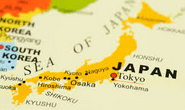Government/Policy

February 7, 2022
New Deal with Japan on Section 232 to Be Announced This Afternoon: Sources
Written by Michael Cowden
The United States and Japan are expected to announce this afternoon a new deal on Section 232 regarding Japanese steel exports to the U.S., according to sources familiar with the matter.
The new agreement will be a tariff rate quota, or TRQ, broadly similar to one negotiated between the U.S. and the EU last year. But certain key details are different – notably when it comes to exclusions, they said.
![]() Official documents are expected to be released at approximately 5 pm Eastern Time in the U.S., sources said.
Official documents are expected to be released at approximately 5 pm Eastern Time in the U.S., sources said.
The Office of the United States Trade Representative (USTR) and the U.S. Commerce Department – which are expected to make a joint announcement this afternoon – did not immediately respond to requests for comment. The Embassy of Japan in the U.S. and Japan’s Ministry of Economy, Trade and Industry also did not immediately respond to requests for comment.
Here are the details according to those familiar with them but not authorized yet to speak about them publicly.
Japan’s annual quota volume will be 1.25 million metric tonnes per year. That tonnage will be divvied up on a quarterly basis. And any tonnage over those quota limits will remain subject to Section 232 tariffs.
Japan exported approximately 550,000 tonnes of steel to the U.S. in 2021 that were excluded from Section 232 tariffs. That tonnage will count against the 1.25 million tonne quota limit in the new deal. In other words, only 700,000 tonnes of additional imports will be allowed to be shipped to the U.S. tariff free.
That detail makes this a significantly different agreement than the one reached with the EU, in which tonnage previously excluded from Section 232 was grandfathered in and did not count against the quota limit.
The Japan TRQ will be administered using the same 54 product categories that were specified in the EU agreement. It will also contain melted-and-poured language that was in the EU deal. That issue was key for U.S. steelmakers, who see it as an important tool in fighting transshipment.
The Japan Section 232 deal that will be announced today applies only to steel. SMU is not aware of any announcement regarding aluminum, which presumably will remain subject to the 10% tariff rolled out in 2018 by the Trump administration.
The details of the TRQ with Japan also suggest that the Biden administration will not use a one-size-fits-all approach to trade. While the TRQ format is broadly similar to the EU pact, details such as how exclusions will be handed are different – an indication that future negotiations will be handled on a country-by-country basis.
Some sources said Japan might also face a disadvantage in future steel trade talks when it comes to CO2 emissions given its heavy reliance on the blast furnace route of steelmaking.
Talks are also underway between the U.S. and the UK.
A deal with the EU on Section 232 was reached in late October. Negotiations between Japan and the U.S. have been underway since November.
Section 232 tariffs – 25% on foreign steel and 10% on foreign aluminum – where implemented in 2018 by the Trump administration on national security grounds. That irritated traditional U.S. allies such as Japan and the EU, which strenuously disagreed with the idea that their steel and aluminum threatened U.S. national interests.
Japan does not ship large quantities of steel to the U.S. but is an important supplier of certain niche products as well as to Japanese automakers with North American assembly plants.
The East Asian nation shipped 921,535.7 tonnes of steel to the U.S. through November of 2021, according to Commerce Department figures.
That placed Japan No. 7 behind Canada (6.59 million tonnes), Mexico (3.97 million tonnes), Brazil (3.73 million tonnes), South Korea (2.31 million tonnes), Russia (1.38 million tonnes), and Germany (1.07 million tonnes).
Final import figures for all of last year were not available when this article was filed.
By Michael Cowden, Michael@SteelMarketUpdate.com







